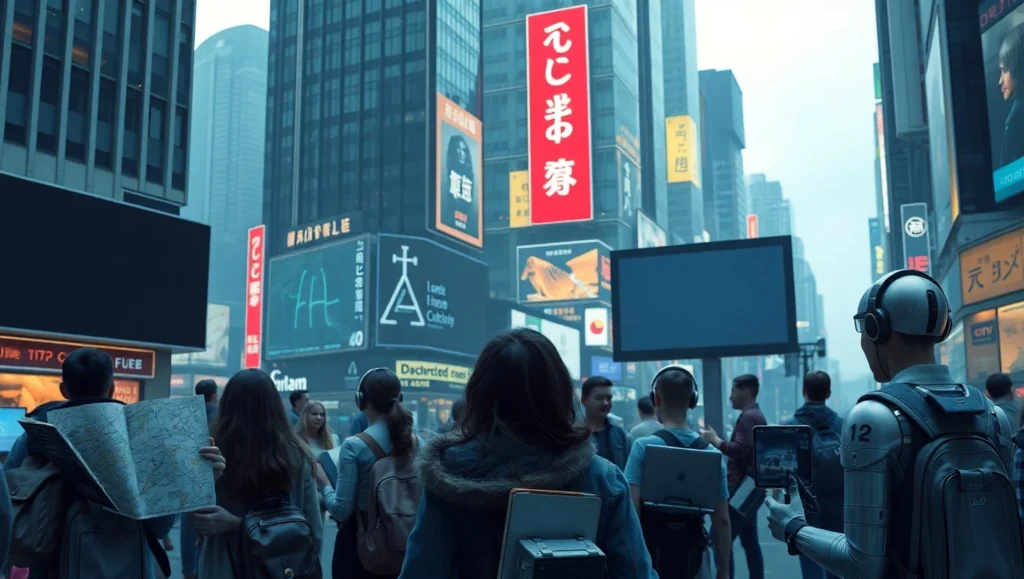
A city adapting to life without AI tools or Google services, returning to traditional methods of navigation and information.
Introduction:
Imagine waking up one morning to find that artificial intelligence (AI) systems and Google no longer exist. No smart assistant replies to your questions, no maps guide you, and your favorite search engine is gone. It may sound like science fiction, but exploring this “what if” scenario reveals how deeply these technologies are integrated into our daily lives.
1. Impact on Daily Life
- No Google Search: People would struggle to find information instantly. We’d need to return to traditional research methods like books, libraries, and offline databases.
- Loss of Convenience: AI tools in smartphones, home automation, and even customer service would vanish, making everyday tasks less efficient.
- Navigation Trouble: Without Google Maps, commuting and traveling would become more difficult, especially in unfamiliar areas.
2. Business & Economy Disruption
- Search-Dependent Businesses: Thousands of businesses rely on Google for web traffic and advertising. A shutdown could cripple their operations.
- AI in Finance and Healthcare: AI tools used in banking, stock trading, and diagnostics would halt, slowing progress and impacting outcomes.
- E-commerce Challenges: Online retailers would lose intelligent recommendation systems powered by AI, potentially reducing user engagement and sales.
3. Education and Learning
- No AI Tutors or Search Engines: Students would lose access to personalized learning platforms and instant access to academic resources.
- Return to Traditional Learning: Teachers and institutions would have to rely more on printed material, lectures, and non-digital methods.
4. Security & Surveillance
- Reduced Monitoring Systems: AI powers surveillance, fraud detection, and cybercrime prevention. Its absence could create loopholes in public safety and cybersecurity.
- Manual Security Management: Organizations would need to rely on more human intervention, increasing the scope for error and delays.
5. Creative Industries and Media
- No AI Tools for Creators: Writers, designers, and video editors using AI tools for faster, smarter content creation would be impacted.
- Search Engine Dependency: Journalists, bloggers, and influencers would lose a key channel for research and visibility.
6. Emotional and Social Impact
- Loss of Companionship: AI chatbots and digital assistants that offer emotional support would disappear, potentially affecting mental well-being for many.
- Disruption in Communication: Services like Gmail, Google Meet, and YouTube would be lost, impacting how we communicate, learn, and connect globally.
7. Innovation & Research Slowdown
- Slower Scientific Progress: AI accelerates drug discovery, climate modeling, and engineering. Without it, these fields would move at a slower pace.
- Tech Industry Setback: Google’s and AI’s contributions to innovation across industries would be deeply missed, stalling future growth.
Conclusion:
The sudden disappearance of AI and Google would reshape the world in unprecedented ways. From business to education and communication, nearly every aspect of life would need to adapt. While it’s an unlikely scenario, it highlights how dependent we’ve become — and reminds us of the importance of digital resilience and alternative tools.
